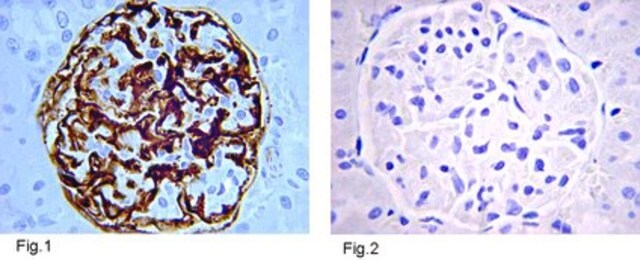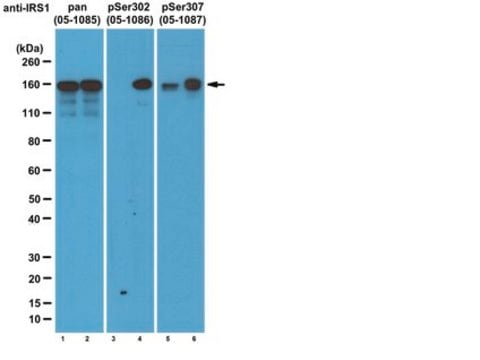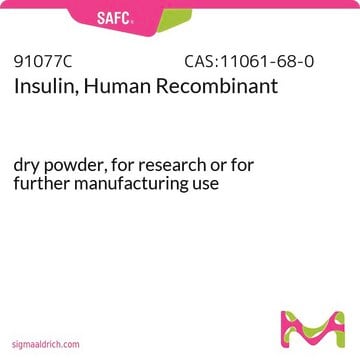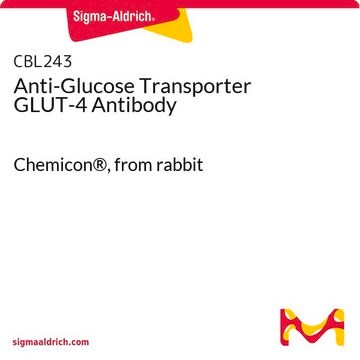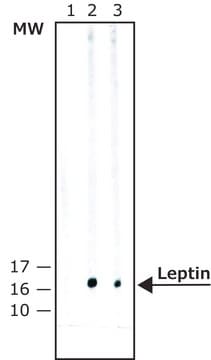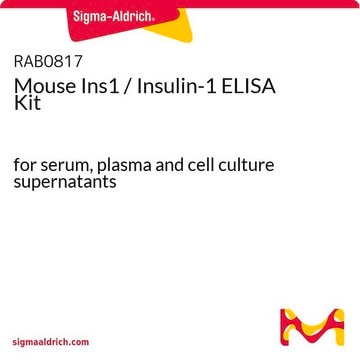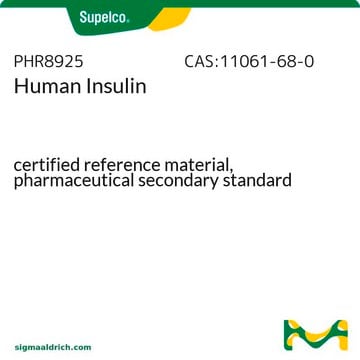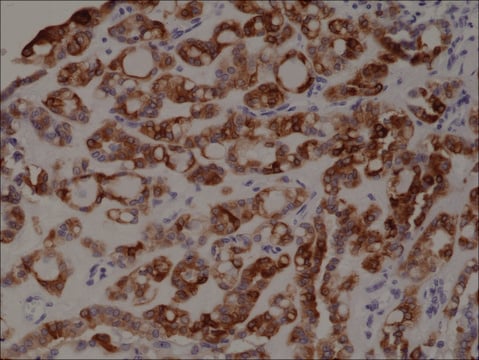SAB4200691
Anti-Insulin antibody, Mouse monoclonal
clone K36AC10, purified from hybridoma cell culture
Sinónimos:
INS
About This Item
Productos recomendados
biological source
mouse
Quality Level
antibody form
purified immunoglobulin
antibody product type
primary antibodies
clone
K36AC10, monoclonal
form
buffered aqueous solution
species reactivity
guinea pig, porcine, bovine (proinsulin), rat, monkey, sheep, dog, horse, human (insulin ), rabbit
technique(s)
immunoblotting: suitable
immunocytochemistry: suitable
immunofluorescence: 2.5-5 μg/mL using ß -TC-6 Mouse Embryo Pancrease Insulinoma cells.
immunohistochemistry: 10 μg/mL using heat-retrieved formalin-fixed, paraffin-embedded human pancreas sections and Biotin/ExtrAvidin®-Peroxidase staining system.
radioimmunoassay: suitable
isotype
IgG1
shipped in
dry ice
storage temp.
−20°C
target post-translational modification
unmodified
Gene Information
bovine ... Ins(280829)
dog ... Ins(483665)
guinea pig ... Ins(100379579)
horse ... Ins(111776000)
human ... INS(3630)
pig ... Ins(397415)
rabbit ... Ins(100009181)
rhesus monkey ... Ins(704534)
General description
Immunogen
Application
Biochem/physiol Actions
Physical form
Legal Information
Disclaimer
¿No encuentra el producto adecuado?
Pruebe nuestro Herramienta de selección de productos.
Storage Class
10 - Combustible liquids
wgk_germany
WGK 1
flash_point_f
Not applicable
flash_point_c
Not applicable
Certificados de análisis (COA)
Busque Certificados de análisis (COA) introduciendo el número de lote del producto. Los números de lote se encuentran en la etiqueta del producto después de las palabras «Lot» o «Batch»
¿Ya tiene este producto?
Encuentre la documentación para los productos que ha comprado recientemente en la Biblioteca de documentos.
Nuestro equipo de científicos tiene experiencia en todas las áreas de investigación: Ciencias de la vida, Ciencia de los materiales, Síntesis química, Cromatografía, Analítica y muchas otras.
Póngase en contacto con el Servicio técnico
